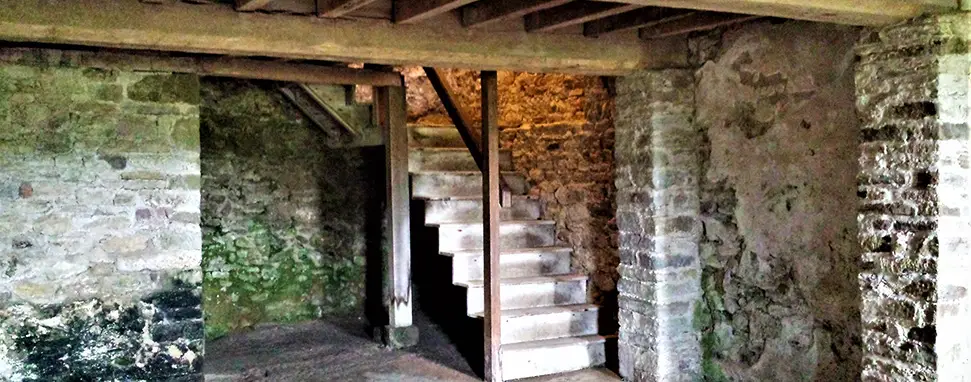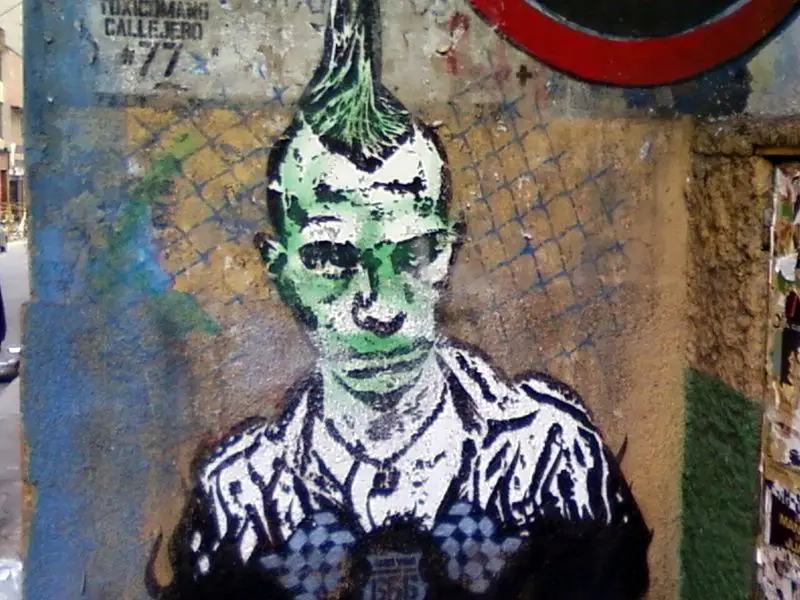Are Basement Bedrooms Safe

When I was younger I played the lead guitar in a band that practiced in a friends basement.
The basement was covered completely in cement and had its own weird musty smell.
It was cold and damp and blaringly loud.
Creepy vibe included.
And since the band practiced in the next little town over, I had plenty of opportunities to sleep in that basement.
Not fun and not healthy either.

Is Sleeping in the Basement Bad for Your Health?
Yes. Sleeping in the basement can negatively affect your health because of two reasons.
1. Basements tend to be a breeding ground for mold and have larger concentrations of mold spores in the air.
2. People tend to breathe deeper when they sleep.
In short, sleeping in the basement is an invitation to breathe in large quantities of mold spores and allergens.
And if you're someone like me that has sleep apnea , mold spores only aggravate the situation further.
Sleeping in the basement is not bad for your health as long as you have a nice dry basement.
But that is typically not the case.
Basements tend to be damp and dark which creates the ideal atmosphere for mold to grow.
Mold is a fact of life and it is everywhere. You are literally kicking up mold and breathing it, in any situation where your walking outside.
But being in a situation,
like sleeping in the basement where you were forced to breathe concentrated amounts of mold spores,
you may find that you are struggling to breathe.
And since people tend to breathe in deeper when they are sleeping, sleeping in a damp basement is not a good ideal.
Sleeping in the Basement Tips
If you're planning on sleeping in the basement more than a just one off or once in awhile, you may want to look into some different ways you can make your basement more inhabitable.
1. Clean it up
Because basements do tend to be damp and dark, there is usually mold growing somewhere either on the walls or the ceiling or the floor.
Before you get started moving in or with any construction you're going to have to clean the mold up first.
What is better for cleaning mold? Bleach or Vinegar?
A tip : Bleach is usually the first thing that comes to mind when it comes to cleaning mold off of the wall or surfaces. But in actuality, vinegar will do a much better job. The reason is it can get below the surface into pourous areas where as bleach will only get the surface.
When you're cleaning mold with vinegar you'll need to get you some non-porous gloves because vinegar is an irritant to skin.
Also a good spray bottle will be handy.
The ideal is to saturate the mold with vinegar and let it sit for at least an hour before scrubbing it off.
Dark and damp areas also attract a lot of bugs and rodents.
Mold spores are not the only thing in the basement that will cause allergies to flare. There is also most likely going to be a lot of mice and roach feces.
Roach droppings can be a significant trigger for an asthma attack and also cause multiple allergy symptoms like itchy eyes and wheezing. As well as ear infections just to name a few.
Mice droppings or even more scary because they have diseases like salmonella and hantavirus connected with them.
The Point is you do not want to be sleeping with insect and rodent droppings in the same room. It's not only nasty it can also be a significant health hazard.
A disinfectant or bleach is going to be best for cleaning up mice and roach droppings.
But remember this isn't the same process as cleaning mold and you shouldn't mix bleach and vinegar or use them in the same room at the same time because they will create a toxic concoction when they are combined.
1. Use a vacuum to pick up the droppings.
2. Spray the area generously with bleach and lit sit for a hour or so to completely disinfect the area.
3. Then mop and rinse.
Dry it up
Cleaning up the mold is not going to be enough to keep it from coming back. You are still going to have the same recipe for mold that you had before you cleaned unless you do something to reduce the humidity in the basement.
Since basements are typically made from concrete there can be cracking in the walls which will allow for moisture and leaks.
The cracks need to be sealed and filled.
Same goes for any pipes in the basement. Without fixing leaks, you will find yourself back in the same situation of mold growing on your surfaces.
Cracks in cement can be filled with Great Stuff.
If your not familiar with this product, it is insulation in a can.
When Great Stuff it is sprayed, it expands a great deal. Enough that is will expand deep down into any crack you use it on.
After is has dried, you'll want to cover the cracked area with a concrete sealant.
It is not uncommon for great stuff to expand so much that you have to cut it back or scrape it off.
The best practice when using Great stuff or any other canned insulation is to test it out on a small area first and see how much you're going to need.
I promise you it will be well worth the little extra time it takes to do a test because of the amount of time it will take to cut all that stuff back if you spray too much.
A dehumidifier is the suggested appliance for reducing the moisture in the air of the basement.
A dehumidifier is just what it sounds like, a machine that takes humidity out of thes air.
After all the mold is cleaned, the rat & roach droppings vacuumed and disinfected, and every leak patched,
Keeping a dehumidifier running will help you keep the status quo.
Test for Radon
Radon is a colorless and a odorous radioactive gas that and build up in the basement as well as the rest of the house quite easily.
It sounds quite nemesising as well as it should be because of the risk of cancer that radon carries.
But testing for Radon can be easy and inexpensive. There are some services that supply testing kits that you need to send in to have a lab analysis done on or you can keep it simple and own radon detector that will have a Audible indicator if radon gas becomes too high in your room.
What to do if you discover you have radon in your basement?
There are some do-it-yourself ways to prevent radon gas from becoming a problem in your basement as well as some diy things you can do to remediate if you discover you have a problem after testing for it.
1. Caulk and seal any cracks
2. Install plastic sheeting under flooring and wall insulation. An easy solution if you've yet to do any construction in the basement yet.
BUT. The EPA recommends that you hire professional to have proper ventilation installed. And depending on what point you are at in the remodeling of your basement to sleep in it, hiring a professional maybe the less expensive and also provide the xtra peace of mind that it has been taken care of properly.
How can I improve the air quality in my basement?
An air purifier is also a appliance that would be worth investing in to keep the air quality in the basement livable.
Basements tend to be closed off with very little air flow. Because of this fact, air pollutants can accumulate easier.
Vocs which are the air pollutants usually known for being things like paint fumes, cleaners, even crafting supplies, etc, can become very high in a closed-off room like a basement.
Are air purifiers good for basements?
The suggested technologies to look for in an air purifier are going to be HEPA and Carbon filters. HEPA filters are designed to capture pollutants of small is .3 microns which is basically the size of bacteria. Carbon filters are dense enough to capture odors and gases.
Will a air purifier help with basement smell? Will a dehumidifier help with basement smell?
Yes both an air purifier and humidifier will help reduce the musky smell in the basement. Mildew is the smell typically associated with basements.
Where there is mildew, going to be mold growing somewhere.
A dehumidifier will dry up the air and eventually replace the you smell with a fresh air smell.
Because basements are closed in areas, mildew is not the only smell that can linger. An air purifier that uses HEPA and carbon filters will capture unpleasant odors by absorbing the bacteria or gas into the filters.
There are some combination dehumidifier and air purifier all in one machines available that are virtually made for the basement.
Should I use an ionizer in the basement?
No, negative ionizers are not suggested for closed in rooms like the basement because they create a low level of ozone and ozone can build up. The build-up of ozone is the number one reason that the EPA discourages the use of air cleaners that manufacture ozone in homes.
Summary
To sum it up. The basement tends to be an area where mold and mildew have their run. Taking big breaths is part of sleeping.
That means that when you are sleeping in the basement you are setting yourself up to take big breaths of mold spores as well as the allergens and germs left behind from Mouse and roach droppings.
Sleeping should be peaceful and not hazardous.
So unless you do some things to dry the basement out and get rid of mold and bug and mice droppings , you should hold out on sleeping in the basement.
Peace
Source: https://breathebetterair.org/all-post/is-sleeping-in-the-basement-bad-for-your-health/



0 Komentar